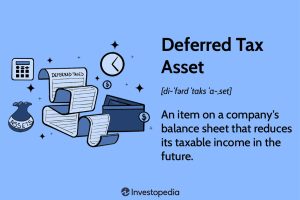Do I Get Taxed on My Assets? Understanding Asset Taxation
When it comes to managing your finances, understanding how your assets are taxed is crucial for effective financial planning. Different types of assets may be subject to various taxation rules, and being informed can help you optimize your tax liability. In this article, we will explore the basics of asset taxation and provide insights into strategies for minimizing the impact on your wealth.
Types of Taxable Assets
Not all assets are taxed in the same way. It’s essential to distinguish between various types of assets and their respective tax implications. Common taxable assets include:
- Real Estate: Properties, such as homes, rental properties, and land, are often subject to property taxes and capital gains tax upon sale.
- Investments: Stocks, bonds, and other investment instruments may incur capital gains tax when sold. Dividends and interest earned can also be taxable.
- Business Assets: If you own a business, the assets associated with it may be subject to specific taxation, depending on the business structure.
- Bank Accounts: Interest earned on savings accounts is typically taxable income.
- Retirement Accounts: Withdrawals from traditional retirement accounts like 401(k)s and IRAs are generally taxed, while Roth accounts may offer tax-free withdrawals under certain conditions.
Understanding Capital Gains Tax
One significant aspect of asset taxation is capital gains tax. Capital gains result from the sale of an asset that has increased in value. The tax is applied to the profit made from the sale. There are two types of capital gains tax:

- Short-Term Capital Gains: Taxed at ordinary income tax rates and applicable to assets held for one year or less.
- Long-Term Capital Gains: Taxed at lower rates and applied to assets held for more than one year.
Strategies for Tax Optimization
While taxes are unavoidable, there are strategies to optimize your tax liability on assets:
- Asset Location: Consider the tax implications of different accounts. For example, placing tax-efficient investments in taxable accounts and less tax-efficient ones in tax-advantaged accounts.
- Tax-Loss Harvesting: Offset capital gains by selling investments at a loss. This can be particularly useful for minimizing taxes on investment gains.
- Use of Tax-Advantaged Accounts: Contribute to retirement accounts and take advantage of tax benefits associated with these accounts.
- Estate Planning: Plan your estate to minimize taxes for your heirs. Utilize strategies such as gifting and setting up trusts.
In conclusion, understanding how your assets are taxed is essential for making informed financial decisions. By being aware of the tax implications of different assets and employing strategic planning, you can minimize your tax liability and enhance your overall financial well-being.



